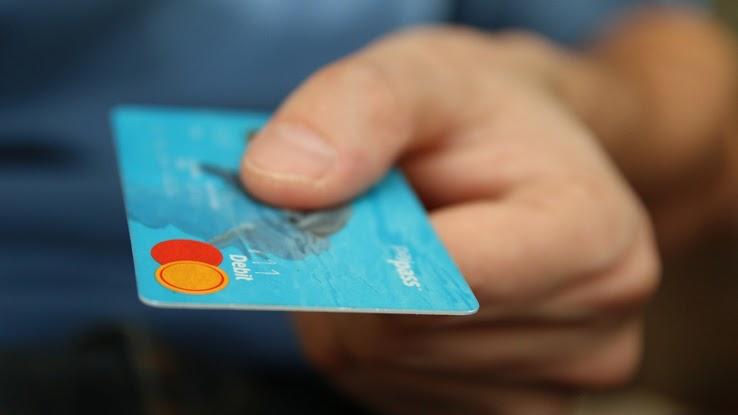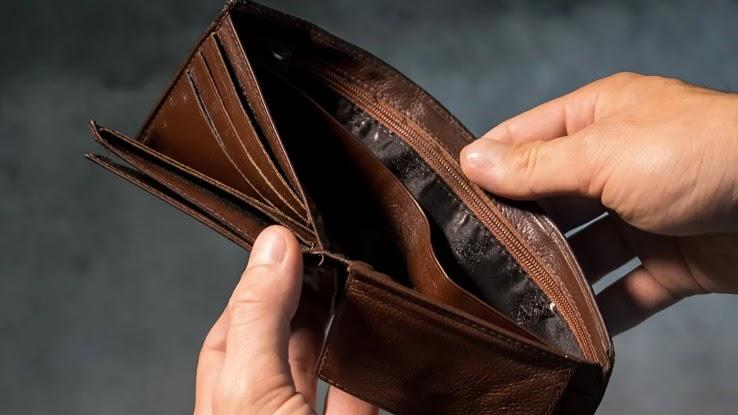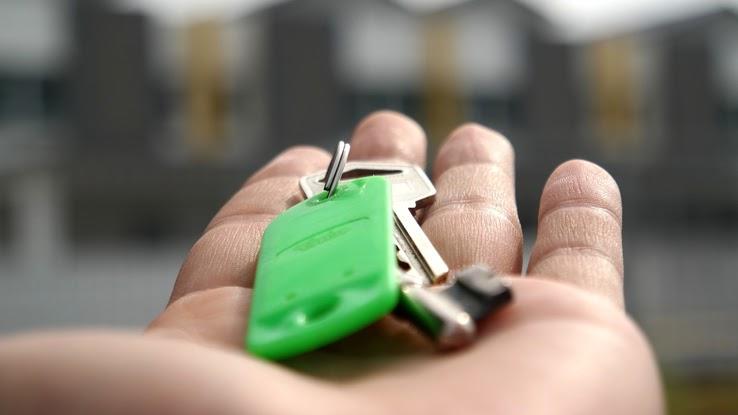People Who Are Good With Money Avoid These Missteps

While there are hundreds of potential mistakes people might make with money, there are some financial moves that can really set you back. Between bad habits and wishful thinking, poor financial choices can happen all the time.
This round-up can serve as your guide for what not to do when it comes to personal finance. From not saving for retirement to living beyond your means, here are some things that people who are financially stable don’t do.
Lose Track of Money
Money isn’t infinite. That’s why it’s important to keep track of where you’re spending it. If you don’t know where your money is going, it’s easier to waste it. Let’s say you’re paying for subscription services you don’t use. Before long, you’ve spent $1,000 on music streaming, and you had no idea. That $1,000 you didn’t use could’ve paid down a credit card.

Keep track of your spending, expenses, debts and investments. This doesn’t have to consume a lot of your time, but keeping track will ensure you’re going in with your eyes wide open. You should know where your money is and where it’s going.
Buy Houses They Can’t Afford
Being house poor isn’t a good look. This term refers to someone who uses most of their income on a housing payment. If you pay more for a house than you can actually afford, you’re putting yourself at risk financially.

Buying a house that you can’t really afford means you’re holding a lot of debt and making larger mortgage payments. The money you’re earning is all going to your mortgage instead of a savings account or a retirement fund. People who are good with their money understand that it’s better to stay within your means when it comes to housing.
Overspend on Credit Cards
Overspending on credit cards is one of the biggest financial mistakes someone can make. If you have too high of a credit card balance, you may be heading down a slippery slope. If you can’t make your payments, then you’ll also be subject to expensive late fees and interest charges.

Financially savvy people understand the importance of keeping their credit card debt low. You’ll save a ton of money on interest, and you won’t need to pay extra fees or late charges. The lower your credit card debt is, the higher your credit score will be, too.
Invest Money They Can’t Lose
Investing takes a little planning and saving to do properly. Someone who does well with money has usually planned their investments to some degree. If you’re not great with money, you may invest cash you can’t afford to lose. Make sure you’re in a good place to invest.

Part of being financially responsible means that you don’t invest money that you don’t have. If you know that you can’t afford to lose the money you’re investing, then you shouldn’t be doing it. Stick to manageable investments, or get a financial planner’s advice.
Live Beyond Their Means
Financially secure people are sure of where they stand financially. If you don’t have the money to go out every night, put down your credit card and stop heading to restaurants and bars. Make a budget and stick to it.

You should never rely on credit cards and paying bills late to float you through to the next thing. Stick to what you can afford, save anything you can and don’t misuse credit. Not only will you be more financially stable, but you’ll also be less stressed about money. Living paycheck to paycheck is incredibly stressful.
Buy Quantity Over Quality
Someone who’s good with their money knows that, sometimes, a quality item is worth the extra cost. If you’re buying too many cheap little items, you may end up spending more over the long run. A lot of inexpensive clothes or household items may seem like they don’t cost much, but they can quickly add up.

Instead of buying a new cheap black sweater every year because yours gets ripped or worn out, for example, invest in a higher-quality sweater. You may spend more up front, but you’ll be able to keep the sweater for years.
Eat Out All the Time
Eating out is expensive. Not only do you have to pay a premium for convenience, but you’re also throwing money out the drive-thru window. People who are financially stable are usually very careful with their dining-out dollars. When you do eat out, make it count and go with family or friends.

Instead of reaching for seemingly inexpensive fast food, spend a little more at the grocery store each week so you have food on hand. Plan out your meals for the week and spend some time cooking them. Be intentional with how you spend on meals out.
Overspend on Weddings
Weddings can sometimes cost outrageous amounts of money. It’s easy to fall into the trap of overspending on a wedding dress, cake and all the little details that you won’t ever use again after your wedding.

People who are cautious with their money tend to keep a better perspective on spending money on things that they’ll only use or do once — there are a lot of wedding items that fall into this category. Keep your wedding budget realistic and at a level you can afford so you aren’t going into debt as you embark on your marriage journey.
Shop When Emotional
Retail therapy is sort of a common trope. While shopping may seem therapeutic at times, more often than not, positive feelings you get from shopping or retail therapy are temporary. After a long shopping bender, you may even end up feeling worse than you did before.

When you’re stressed, down or emotional, go for a walk instead of going to the mall or your favorite online store. You’ll feel much better about yourself after a nice walk or workout than you would about spending money you don’t have. When you’re feeling emotional, put down your wallet.
Buy Trinkets
We’ve all had someone bring back a cute souvenir or trinket from a vacation. While the thought is sweet, many times these items end up in a drawer, never to be used. People who are smart with their money don’t waste it on little trinkets that no one really needs.

Next time you’re on vacation, if you absolutely have to buy something, make it count. Buy a gift that you can give to someone for their birthday or for a holiday. An old-fashioned postcard can also mean a lot. It’s handwritten, and it won’t cost much more than a dollar.
Misuse Time
People who are good with their money know that time is also a form of currency. When we waste time doing unproductive or unfulfilling things, we’re taking away from something else that can bring us more joy.

TV or social media, for example, can be huge drains on our time. The minutes we spend aimlessly scrolling could be time spent sleeping or getting something else done. More sleep equates to better mental and physical health and more productivity and focus. You can see the monetary value in that. Use your time wisely and, in turn, you may see a shift in your overall financial health.
Skip Retirement Savings
The financially stable people among us don’t skimp on saving for retirement. Your prime working years are the years that matter the most when it comes to retirement savings. Anyone who has built up a nice nest egg started somewhere. Every little bit counts, and no amount is too small.

Make saving for your retirement a priority. Max out your 401(k), and don’t put off saving for retirement until you’re older. The money you save now will compound over time. If you’re not taking your company up on 401(k) matches, you’re leaving free money on the table.
Neglect Making Saving a Priority
When it comes to money, financially responsible people know that saving is one of the most important things you can do. The wise understand that saving is a fundamental part of being financially stable.

If you want to build wealth and be financially secure, start saving now and make it a priority. Make it automatic by taking out a small amount each week or month and having it automatically transferred to your savings account. Having an emergency fund in addition to a retirement fund will help prepare you for anything life throws your way.
Fall for Finance Deals
Financing and sales gimmicks are geared towards enticing you. If you can’t afford what you’re financing, don’t fall for the marketing traps. Financing deals may offer you no interest for a year, for example. After that year, you may end up paying stiff interest fees. You’ll all of a sudden get hit with much bigger payments.

If you can’t afford to pay back the financing after that first year, don’t take the deal. You’ll end up paying more than you initially borrowed, and the deal you thought you were getting will actually cost you more in the end.
Co-sign If They Can’t Pay
Out of the goodness of your heart, you may feel obligated to help someone out by co-signing for them on a loan. If you can’t afford to pay back the loan if they fail to pay, you may be making a costly financial mistake. Make sure you have a tough conversation with your co-borrower before agreeing to anything.

Be cautious and realistic about co-signing for anyone who might not be financially responsible. Saying no to co-signing doesn’t mean you love your nephew or sister any less. Declining to co-sign can show you’re financially responsible, and you can offer to help in other ways.
Rely on Cash When Traveling
When it comes to traveling, cash can be really handy. It’s easier to split the bill with friends or make small purchases when you have cash. But financially responsible people know that carrying only cash with you when you travel is risky. If you lose your wallet or your purse gets stolen, you’ve lost all of your money.

When traveling, keep small amounts of cash on you for necessities. The rest of the time, travel with credit or debit cards to keep your money safe. Pay off your credit card balance sooner rather than later to avoid paying more in fees.
Give Money Over the Phone
Scammers and solicitors are real threats. While you may think it could never happen to you, you should never give money over the phone to someone you don’t know. If the person calling you says they’re from a charity you want to support, then politely decline and go online to donate safely.

People who are cautious with their money may seem a little frugal, but they’re really just playing it safe. You should do the same. Err on the side of caution and stay away from telemarketers who ask you for money or financial information over the phone.
Buy Poor-quality Shoes
While there may be some rarely worn shoes in your closet, your durable, everyday shoes are ones that need to stand the test of time. The money-wise even treat shoes as an investment. Cheap shoes tear and break, and they’re uncomfortable. You’ll end up spending more money needing to replace them all the time.

People who invest in high-quality shoes reap the benefits by saving more money. Your one-time investment in well-made shoes can save you from spending money over and over again on pairs that wear out fast. Make the investment in a shoe that can stand up to everyday wear.
Buy New Cars
New cars are one of the worst investments out there — they’re not really “investments” at all. Not only does it take decades for some cars to appreciate in value, but new cars also actually depreciate the second you drive them off the lot. If you’re someone who’s good with money, you’re likely driving a car that’s at least a couple of years old.

You can save a lot by buying a pre-owned car. You can also save money by keeping the same car for a while. Buying a new car just isn’t a good investment when you consider the massive loss you take right off the bat.
Hire an Advisor They Don’t Trust
Your money is precious. You never want to put money in the hands of someone you don’t know or trust. A financial advisor can be a real partner and confidant when you find the right one. Take this relationship seriously and trust your gut.

People who value their money only work with advisors they trust. Your money is valuable and so is your time. Spend it with the right person. If you don’t have a good feeling about who you’re working with, make a change. You should never worry about changing your advisor when you need to.
Have Only Liquid Investments
A liquid investment is one that you can easily convert to cash. A money market fund, publicly owned company shares and stocks are all examples of liquid assets. When you convert these assets to cash, you typically won’t see a big impact on their value.

If you have too many liquid assets, you may not be investing in fixed assets such as real estate or retirement savings such as a 401(k). These fixed assets aren’t easily converted to cash, but they’re important for building wealth. Make saving for fixed assets like a down payment a priority.
Overbuy Company Stock
Buying company stock can be a great way to diversify your portfolio and build wealth. The problem with overbuying company stock is that you might put too many eggs in one basket. If your company goes through a tough time, you might lose a lot of your investment.

Financially savvy people typically spread out their investments. Limit your ownership in company stock to under 10% of your net worth to avoid risking too much of your money. With company stocks, there are too many factors out of your control for them to be your primary source of investment.
Buy Useless Gifts
Being generous is a great thing. Being generous, however, doesn’t always have to mean spending a ton on gifts or freely giving away money. Most people don’t actually need more stuff. Stop trying to buy gifts people really don’t want. Instead, give them something more meaningful that may not even cost anything.

Be generous with your time, your care, your company and your help. If a friend had a new baby, offer to stay with the baby while they go out to eat or take a shower. If you have an elderly relative, offer to mow their lawn. These types of gifts are priceless.
Be Unintentional
Spending money is easy to do. You can spend money on your phone, from your couch or while watching television. Smartphones, apps and the internet have made spending money far too easy. But when you’re financially stable, you’re also less likely to be impulsive.

When it comes to spending, try to be intentional about how you spend your money and where you spend it. Take some time to think about where your money is going and what you’re purchasing. Do you really need that shirt? Can you live without the $5 latte today? You probably know the answers to these questions.
Lease the Latest Cars
It’s easy to get swept up into keeping up with appearances. Having the latest car can seem like a necessity. But when it comes to leasing a car, you may actually be spending more money. Leasing a new car every year can cost you a lot of money in the long run.

Money-wise drivers purchase a used car over leasing one every year. Even leasing a car and keeping it for three years if possible can save you some money. Alternatively, lease a pre-owned vehicle or last year’s model for a discount.
Share Financial Details on Social Media
While your followers on social media may love to see photos of your dog at the beach, they don’t need to see how much you spent on a purse. Keep your finances, spending and personal financial information off of social media. You never know who’s looking at your account or sharing your information.

When it comes to your income, net worth or sensitive financial info, less is often more. Keep your finances to yourself and don’t overshare. Sharing financial information opens you up to scammers, fraud and unsolicited marketing that you don’t need.
Sign Contracts Without Reading Them
One of the biggest financial rules of thumb is to never sign anything before reading it fully. With any financial or legal paperwork, you should always read it, double-check it and read the fine print before committing to or signing anything.

Once a financial contract has been signed, it can be very difficult to get out of it or break the obligation. If you don’t read all of the fine print, you may also be liable for hidden fees, transaction costs or interest rates you weren’t aware of. This can be a costly mistake. Bottom line? Read before you sign.
Buy a Home Without Understanding the Costs
Buying a home is an important and exciting time in anyone’s life. When you’re ready to take the plunge, be sure you know the full financial picture. Keep in mind that you’re not only paying for the mortgage, but you’re also paying for fees, taxes, insurance and utility bills.

A house with a homeowners’ association may also have dues. If you have a big yard, you may also need to factor in maintenance. When you go to purchase a home, look at the full picture and make sure you overestimate the living costs. This way, you won’t get caught unprepared.
Loan Money When They Can’t Afford To
Loaning money to a friend or family member may seem like a good idea, but it’s often a slippery slope. Even the most trusted friend can fall on hard times and may become unable to pay you back. If a friend or family member comes to you needing money, proceed with caution.

If you’re lending money and you can’t pay your own bills, this is a problem. As much as you want to help, doing so while financially unstable isn’t really helping. Explain to your friend that you aren’t able to assist them. If there’s another way you feel comfortable helping, you might offer that up instead.
Overspend on Lotto Tickets
Lotto tickets are a fun little trap designed to get you to spend money with the promise of a big payout. We all know how small the odds are of actually winning a lottery, but it doesn’t make it any less enticing to play.

Whether it’s the lotto or gambling in general, think of it as a novelty, not an investment. You aren’t getting any money in return in almost all cases. The more you spend, the more money you’re throwing away. Instead of spending $10 a week on lotto tickets, put that into a savings account.





